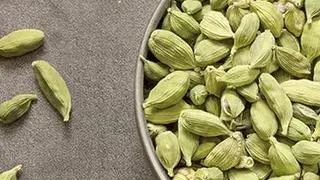Even as genetically-modified mustard came a step closer to becoming the first food crop in India to be approved for commercial production after a panel of scientists said it poses no risk to humans, civil society organisations have demanded that the Centre put up the full bio-safety data — and not just the assessment report — on the crop in the public domain to make the feedback process meaningful and scientific.
The oilseed does not raise any public health or safety concerns on human beings and animals with respect to overall nutritional characteristics, the panel said in a document posted on the Ministry of Environment, Forest and Climate Changes website. It is highly unlikely to invade natural ecosystems and poses a negligible risk to biodiversity and agriculture productivity, it said. The oilseed has been developed by the University of Delhi since 2003.
The approval by the panel of scientists puts GM mustard a step closer to gaining State approval. It would be the first food crop approved after the government in 2010 rejected Bt Brinjal, an eggplant developed by Maharashtra Hybrid Seeds Co.
Comments invitedThe report from the panel will be on the Ministry’s website for comments by stakeholders and the general public for a period of 30 days, according to the Ministry. Comments will be reviewed by the panel and the Genetic Engineering Appraisal Committee before a decision is made, it said.
In a letter to the Genetic Engineering Appraisal Committee (GEAC), the Coalition for GM Free India, a network of organisations and individuals, has also demanded 90 days’ time, against 30 days given at present, for feedback from the public.
On Monday, the Environment Ministry invited comments on a safety assessment report prepared by a subcommittee under the GEAC, which stated that GM mustard technology has been found to be “safe for food/feed and environment”. People have been given time till October 5 to comment on the report following which the GEAC will take a final decision on approving GM mustard technology.
“For the full bio-safety dossier and data to be accessed, citizens from all over the country are being asked to come to the Environment Ministry’s office, that, too, with prior appointment. It is not clear if data will be shared even then or if it is expected that the citizen should memorise everything and come back. This is a violation of the CIC orders and also contrary to what GEAC itself has been promising to the CIC in the hearings of an ongoing case,” the letter written by Kavitha Kuruganti from the Coalition from GM Free India stated.
Commenting on the sub-committee’s conclusion in the document that consumption of GE mustard was safe for human and animal health, and that environmental release may not pose any risk to biodiversity or the agro-ecosystem, Kuruganti pointed out that the data should have been put out for independent scientific scrutiny before reaching the conclusion. “Such a conclusion was drawn after two meetings in 15 days’ time, with the third meeting on August 11 giving clearance,” she said.







Comments
Comments have to be in English, and in full sentences. They cannot be abusive or personal. Please abide by our community guidelines for posting your comments.
We have migrated to a new commenting platform. If you are already a registered user of TheHindu Businessline and logged in, you may continue to engage with our articles. If you do not have an account please register and login to post comments. Users can access their older comments by logging into their accounts on Vuukle.